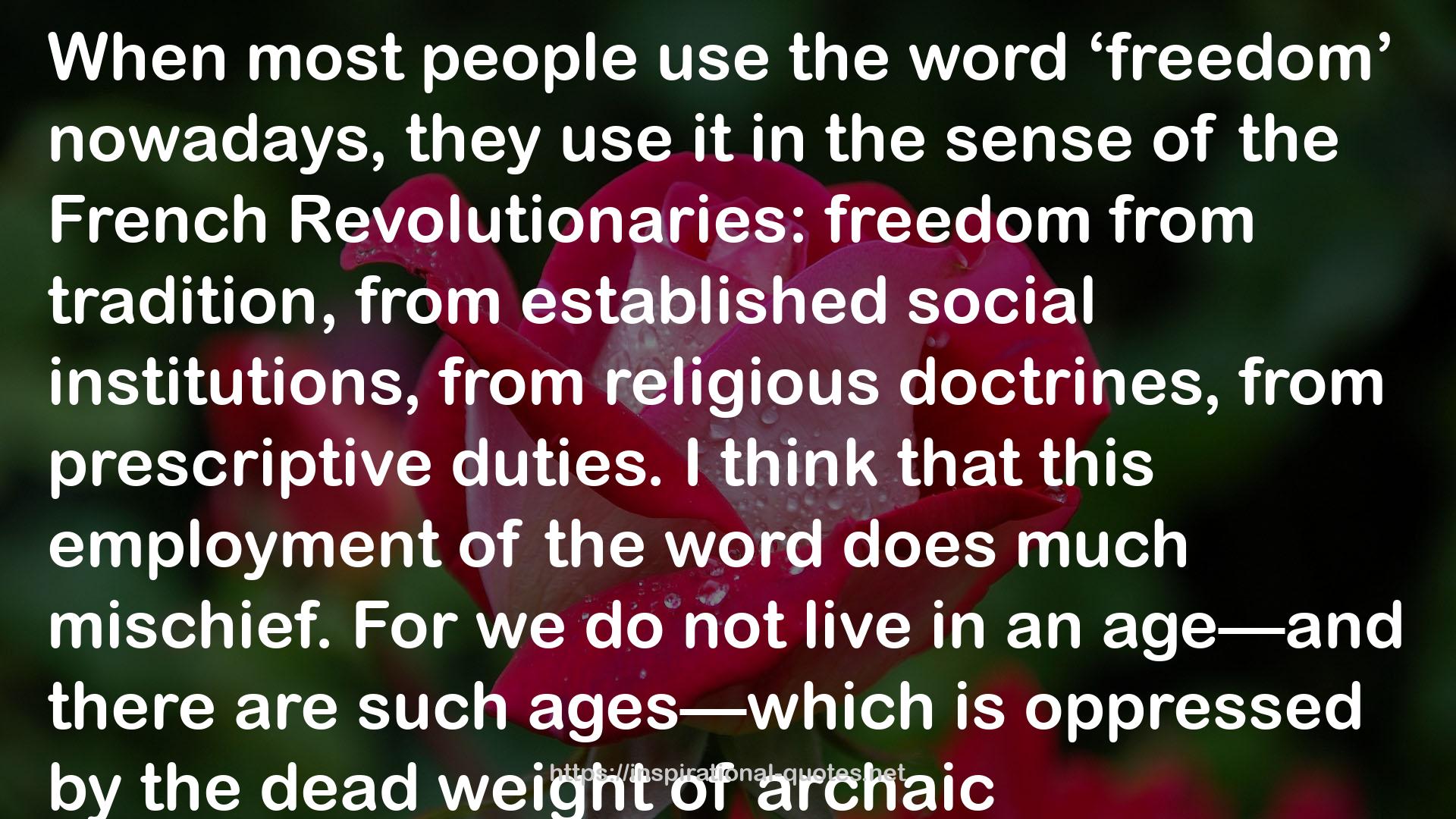" When most people use the word ‘freedom’ nowadays, they use it in the sense of the French Revolutionaries: freedom from tradition, from established social institutions, from religious doctrines, from prescriptive duties. I think that this employment of the word does much mischief. For we do not live in an age—and there are such ages—which is oppressed by the dead weight of archaic establishments and obsolete custom. The danger in our era, rather, is that the fountains of the great deep will be broken up and that the pace of alteration will be so rapid that generation cannot link with generation. Our era, necessarily, is what Matthew Arnold called an epoch of concentration. Or, at least, the thinking American needs to turn his talents to concentration, the buttressing and reconstruction of our moral and social heritage. This is a time not for anarchic freedom, but for ordered freedom. There are much older and stronger concepts of freedom than that espoused by the French Revolutionaries. In the Christian tradition, freedom is submission to the will of God. This is no paradox. As he that would save his life must lose it, so the man who desires true freedom must recognize a providential order which gives all freedoms their sanction. The theory of ‘natural rights’ depends upon the premise of an on alterable human nature bestowed upon man by God. Only acceptance of the divine order can give enduring freedom to a society; for this lacking, there is no reason why the strong and the clever, the dominant majority or the successful oligarch, should respect the liberties of anyone else. Freedom without the theory of natural rights becomes simply the freedom of those who hold power to do as they like with the lives of those whose interests conflict with theirs. "
― Russell Kirk
Image for Quotes

